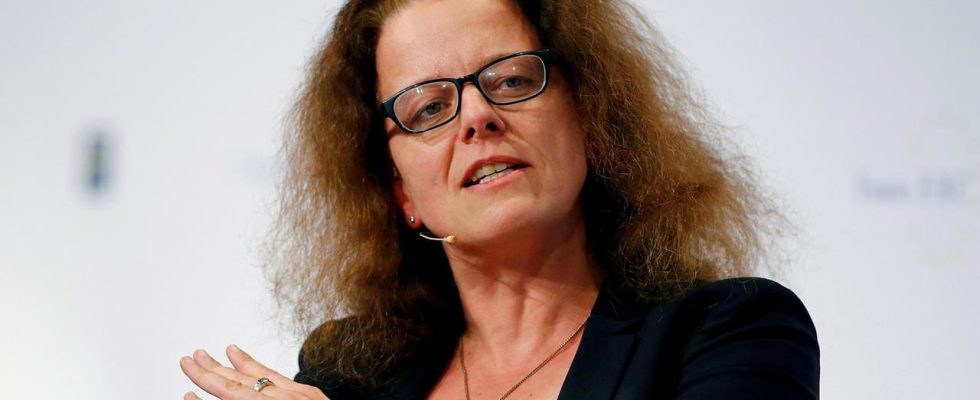Some experts fear that recent wage increases will further fuel consumer price inflation. ECB Director Schnabel, on the other hand, hopes that corporate profits will absorb this.
ECB Executive Board member Isabel Schnabel expects healthy corporate profit margins to absorb most of the wage increases this year. The European Central Bank is therefore not assuming a wage-price spiral in its baseline scenario, it said on Wednesday at an event marking the 60th anniversary of the Council of Economic Experts in Berlin.
Central bank dampens demand
During the energy crisis, corporations could not only have passed on their increased costs, but also increased their profits at the same time, explained Schnabel. “Then the unions wanted to take back a piece of the pie.” Now it depends on whether companies will absorb the wage pressure in their profit margins or whether they are again able to pass on the higher costs to consumers.
“That depends on the macroeconomic situation, aggregate demand and monetary policy,” said Schnabel. The policy of the ECB is dampening demand, making it more difficult for companies to raise their prices and for unions to raise wages more easily. “This can break the dynamics that lead to the wage-price spiral.”
uncertainty remains
Nevertheless, there remains uncertainty that wage increases could fuel price increases and set in motion a wage-price spiral that would be difficult to break, Schnabel warned. Such a scenario could then occur if wages rise more than expected and, moreover, productivity does not develop as well as outlined by ECB experts. It is therefore important to be “very attentive” and to keep an eye on the risk.
A wage-price spiral is not in sight because many one-off payments had been agreed in the collective bargaining rounds, the Munich-based ifo Institute said today. The burden of the energy price shock is distributed fairly fairly, because even from the sales and profit increases of many companies “not much is left after inflation,” said economics chief Timo Wollmershäuser.
“There’s still a way to go”
After the sometimes high wage agreements, some experts fear a situation like in the 1970s, when wages drove prices up further. The inflation rate in Germany was 6.1 percent in May, after 7.2 percent in April. “There is still a way to go,” said Bundesbank boss Joachim Nagel at the anniversary of the Council of Economic Experts, with a view to the ECB’s target of two percent.
But he is confident that a lot has already been achieved. For comparison: In November and October, consumer prices rose by 8.8 percent compared to the previous year. In the past eleven months, the ECB had raised the key interest rate to 4.0 percent – the highest level in 15 years. “We will see that inflation will continue to fall as a result in the coming weeks and months,” said Nagel.
However, the monetary watchdogs must remain persistent, since the rise in prices is also persistent: “For me, inflation is like a greedy beast. And we have to fight against this greedy beast.” The Bundesbank expects an inflation rate in Germany of 5.0 percent for the current year and 3.1 percent in 2024 for the coming year.
With information from Till Bücker, ARD finance department.

